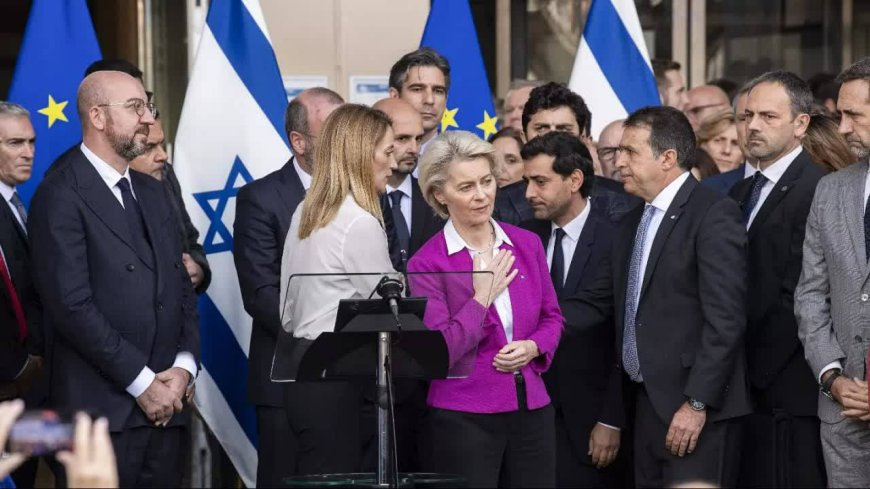The War on Gaza and Europe's Potential Collapse: The Fear of Conflict Spillover
The conflict in Gaza has escalated into an utter catastrophe, with no indication of a sincere commitment from the Israeli regime and its supporters to put an end to this ongoing humanitarian plight. But the repercussions of this war have the potential to deeply impact the European Union, making it the ultimate loser in the current scenario.

Europe, already grappling with a plethora of crises ranging from the immigration crisis to the conflict in Ukraine, now faces yet another formidable challenge. The Israeli war on Gaza could significantly shape the trajectory of the continent, necessitating serious consideration from European policymakers to avert potential ramifications of this dire humanitarian crisis. Today, the extensive collaboration between European capitals and the Israeli regime has proven to be a costly endeavor.
The implications of this war will be felt in both the short and long term across Europe, with the most immediate being the conflict in Ukraine. If the conflict in Palestine drags on to a war of attrition, it will inevitably diminish the United States' prioritization of Ukraine. Consequently, Europe will face an immense challenge, as observers concur that the EU lacks the means to prevail in the war vis-à-vis Russia. This makes it imperative for EU officials to engage with Moscow to negotiate an end to the war due to the shortage of weaponry available to Ukraine. This situation, compounded by the absence of unwavering support from the United States to the Israeli regime, renders Europe ill-equipped to confront the Russian challenge independently.
Moreover, the damage inflicted upon the reputation of Western powers, who thrust Ukraine into the war with Russia, carries significant consequences. By shifting their focus away from Ukraine, despite previous assurances of comprehensive support, the West has effectively left Ukraine in a precarious position, resulting in costly repercussions for Ukraine and Europe. This scenario validates Russia's claims that Ukraine has become a pawn in the hands of Western powers, ultimately leading to its destruction and fratricide between two Slavic nations. This situation provides the Kremlin with ample evidence to bolster its political influence in other Eastern European countries, thereby undermining the expansion plans of the European Union.
The war in Gaza also impacts Europe's energy supply. A portion of Europe's energy resources is obtained through the Mediterranean Sea near the coasts of Israel (occupied Palestine). Considering security in this region is compromised, Europe will face a pressing energy and fuel supply issue, especially during the coming freezing winter months. Finding a suitable, secure, and cost-effective alternative in the short term is nearly impossible, leaving Europe vulnerable to the mercy of the Russians.
Another critical issue that could be exacerbated by the war in Gaza is the influx of migrants into Europe. This issue is highly challenging and has been a subject of intense debate within the European Union, with some attributing it as a factor to the Union's potential collapse, as the fear of conflict spilling over into other regions could precipitate the onset of this crisis. Should this occur, Europe will confront an unprecedented predicament, particularly due to the rising Islamophobia, which may breed resentment among asylum seekers and give rise to substantial security challenges for European nations. Consequently, Europe must act immediately to devise a viable solution to prevent the further escalation of the war in the Middle East, assuming the role of a mediator while upholding principles of balance and impartiality, thereby mitigating the negative outcomes of this conflict. The actions, or lack thereof, of Europe in response to this war will shape its sociopolitical fate: will Europe continue to support the Israeli regime despite its heinous war crimes, or will it distance itself from the Zionist occupiers and reevaluate its biased positions?













































